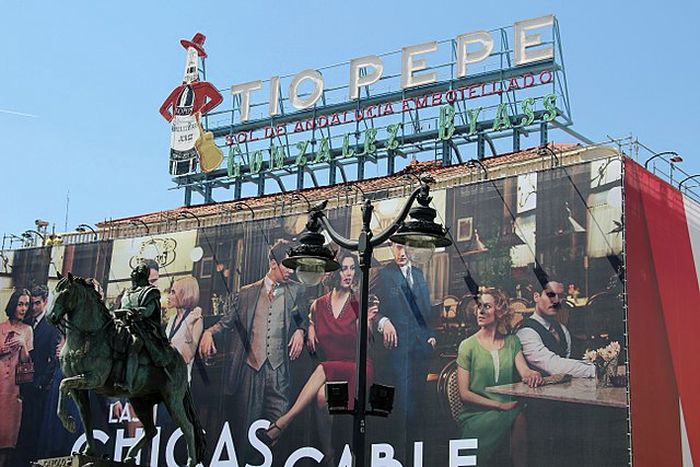Global Frames: New Zealand
For the second instalment of Global Frames, Stella Williamson celebrates her home nation and some of the more iconic art it’s produced.

New Zealand: population 5.25 million. A small but mighty nation of awe-inspiring scenery and some of the entertainment industry’s most decisive minds — Peter Jackson, Jane Campion and Taika Waititi to name a few. Among its 25.5 million sheep, Aotearoa (NZ) also boasts 27 Academy Awards. Below is a list for anyone looking to enjoy all New Zealand has to offer, an alternative to those who don’t have a spare 26 hours, and a cool two grand to travel 12,000 miles across the world.
“New Zealand’s unbelievably beautiful natural world frequently provides the backdrop for Jackson’s adaptation of the original J.R.R Tolkein fantasy saga”
The Lord of the Rings (2001-2003)
You can’t talk about New Zealand, let alone iconic Kiwi films and and not mention Peter Jackon’s magnum opus The Lord of the Rings trilogy, or even its lesser regarded, runty cousin The Hobbit: An Unexpected Journey (2012). No longer do New Zealanders determine just how Kiwi a Kiwi is by their knowledge of the national anthem’s less popular second verse, but instead by how many people you personally know to have played extras in these films (bonus points if you know someone who was both an elf and an orc). New Zealand’s unbelievably beautiful natural world frequently provides the backdrop for Jackson’s adaptation of the original J.R.R Tolkein fantasy saga, with production even constructing an actual Hobbiton village in 1999. The Shire can be found nestled in the verdant Matamata hills of the Waikato region that fans and tourists alike can visit to this day.
What We Do in the Shadows (2014)
While New Zealand’s fantastical rural beauty has inspired many a fantasy film — in The Chronicles of Narnia: Prince Caspian (2008) the Pevensie clan return to Narnia from the Strand tube station via Hot Water Beach’s Cathedral Cove located in the North Island, New Zealand’s capital city features prominently in Jemaine Clement and Taika Waititi’s mockumentary about four vampire housemates living in Wellington. Under the cover of darkness (these are genuine vampires afterall) the household skirmishes with werewolves in local parks and struggle to get into the club when bouncers refuse to formally invite them in. The city’s classic cultural landmark the ‘Wellington Blown Away Sign’ was even changed to spell ‘Vellington’ during the film’s release in an attempt at some truly knee-slapping, breath-hitching, hilarious vampiric humour. The film’s spin-off television series of the same name following four vampire roommates living in Staten Island has been nominated for 29 Emmy Awards and was recently renewed for its sixth and final season.
Hunt for the Wilderpeople (2016)
Waiti’s decidedly more heartfelt 2016 feature is still chocka (some New Zealand slang for you — it means there’s a lot of it!) with suitably dry Antipodean humour. Julian Dennison (Deadpool 2, Godzilla) and Sam Neil (surely requiring no introduction?) star as an at odds foster child-father pair who find themselves the subject of a nationwide manhunt when they go missing in Waitākere Range bushland. I can’t recommend this movie enough, not only for its beautiful settings but its powerful yet all the while humorous exploration of grief and family truly making it one of my favourite films, (those wishing to fact check may refer to my Letterboxd four, username kuwtstardashian05).
“New Zealand’s capital city features prominently in Jemaine Clement and Taika Waiti’s mockumentary”
The Piano (1993)
Before winning Best Director for her work on Netflix’s 2021 The Power of the Dog (filmed in New Zealand’s Central Otago during COVID but set in 20th century Montana), Jane Campion was cementing her reputation with her third feature, The Piano. A historical drama written by Campion but inspired by the texts The Story of a New Zealand River (1920), Wuthering Heights (1847) and The African Queen (1935), it won the Palme D’Or at the 1933 Cannes Film Festival making Campion the first female director to win the award, additionally winning three Academy Awards including Best Supporting Actress for an eleven year old Anna Paquin.
 News / CUP announces funding scheme for under-represented academics19 December 2025
News / CUP announces funding scheme for under-represented academics19 December 2025 News / SU reluctantly registers controversial women’s soc18 December 2025
News / SU reluctantly registers controversial women’s soc18 December 2025 News / Cambridge welcomes UK rejoining the Erasmus scheme20 December 2025
News / Cambridge welcomes UK rejoining the Erasmus scheme20 December 2025 Features / Should I stay or should I go? Cambridge students and alumni reflect on how their memories stay with them15 December 2025
Features / Should I stay or should I go? Cambridge students and alumni reflect on how their memories stay with them15 December 2025 Film & TV / Timothée Chalamet and the era-fication of film marketing21 December 2025
Film & TV / Timothée Chalamet and the era-fication of film marketing21 December 2025










